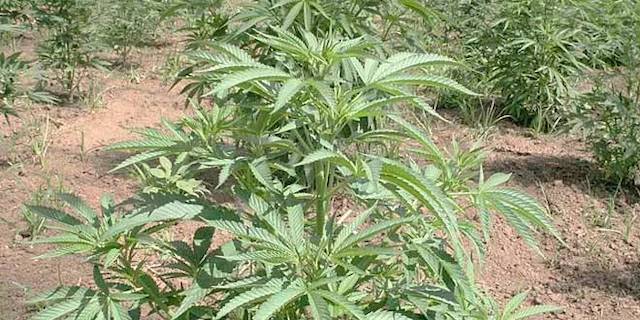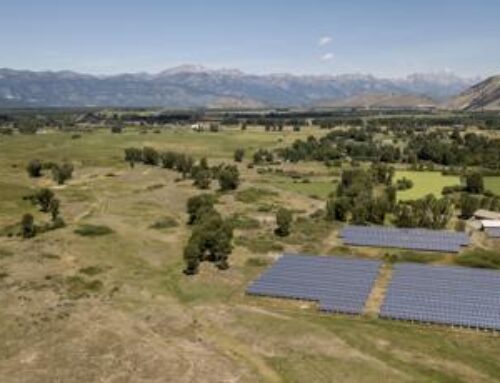Oregon farmers involved with illegal cannabis may lose property tax benefits
May 13, 2025
Published 4:16 pm Tuesday, May 13, 2025
- A bill in the Oregon Legislature would strip landowners found civilly or criminally liable for illicit cannabis production of preferential property tax treatments for farm and timber land for 10 years. (Capital Press file photo)
SALEM — Farmers who allow illegal marijuana cultivation on their land would be subject to higher property taxes under legislation supported by Oregon agriculture and cannabis groups.
Under Senate Bill 347, landowners found civilly or criminally liable for illicit cannabis production would be disqualified from Oregon’s “special assessments” for farm and forest land for 10 years.
Such special assessments are meant to discourage development of rural properties, but proponents of SB 347 say landowners must also be deterred from accepting payments from drug cartels.
“Literally what’s happening, colleagues, is the cartels are bringing in bags of cash to these landowners, saying, ‘Look the other way,’” said Sen. David Brock Smith, R-Port Orford, during a recent legislative hearing on the proposal.
Illegal marijuana growers are known to commit water theft and human trafficking at their production sites, whose workers often endure terrible living conditions and threats to their families, he said.
“The tragedy occurring within these illegal grows is horrific,” Brock Smith said.
The supply of illicit marijuana has also undermined legitimate cannabis growers, who must comply with costly regulations that their illegal counterparts do not, which is why the bill is favored by the Cannabis Industry Alliance of Oregon.
“While it’s true some landowners have been fooled with what they were told was being produced, many have not, and have exploited the loophole of landowners not being held accountable for what is happening on their land,” said Amanda Metzler, a founding board member of the organization.
The Oregon Farm Bureau is likewise urging lawmakers to pass SB 347, which the group prefers to another bill aimed at landowner liability for illicit cannabis production.
That other proposal, House Bill 3194, would more broadly penalize landowners for operating unregistered labor camps, which critics argue could have unintended consequences for farmers who aren’t involved with cannabis production.
“We felt the mechanism in this bill is very clear and easily understood by landowners compared to the other attempt,” said Jenny Dresler, lobbyist for the Oregon Farm Bureau.
Under SB 347, landowners would have the opportunity to offer “affirmative defenses” against losing their special property tax treatment if they weren’t aware of the cannabis production or alerted law enforcement as soon as they were, Dresler said.
“We believe this is the appropriate mechanism to try to disincentivize landowners from taking those bags of cash and allowing this to happen,” she said.
Proponents say the proposal is not meant to encompass growers of hemp whose crop accidentally becomes “hot” by containing too much THC, the substance that renders cannabis psychoactive.
Both hemp and marijuana are types of cannabis, but hemp can cross the legal threshold to become marijuana if environmental factors cause it to generate excess THC.
“If we did get hot hemp for whatever reason, they’re going to be destroying that anyway,” said Brock Smith.
The Senate Finance and Revenue Committee, which is not subject to legislative deadlines, is now reviewing the proposal, which was previously approved by the Senate Judiciary Committee unanimously despite some members expressing reservations about the bill.
For example, Sen. Mike McLane, R-Powell Butte, said he was troubled by the burden of proof falling on landowners to show they were unaware of illicit cannabis cultivation.
However, McLane ended up voting for SB 347 because shifting the burden of proof from the plaintiff to defendant is allowable in certain civil contexts, as landowners would face the loss of tax benefits rather than criminal penalties.
Questions were also raised about why existing penalties against landowners, including the seizure of property, were insufficient to deal with the problem.
Proponents said that other punitive measures often necessitate the involvement of law enforcement, whose resources are already stretched in rural counties.
Meanwhile, SB 347 intends to use less draconian methods to dissuade landowners from allowing illicit cannabis production in the first place, according to supporters.
“I don’t want to take their property away, I just want to disincentivize them from taking bags of cash from the cartels,” Brock Smith said.
Search
RECENT PRESS RELEASES
Related Post





